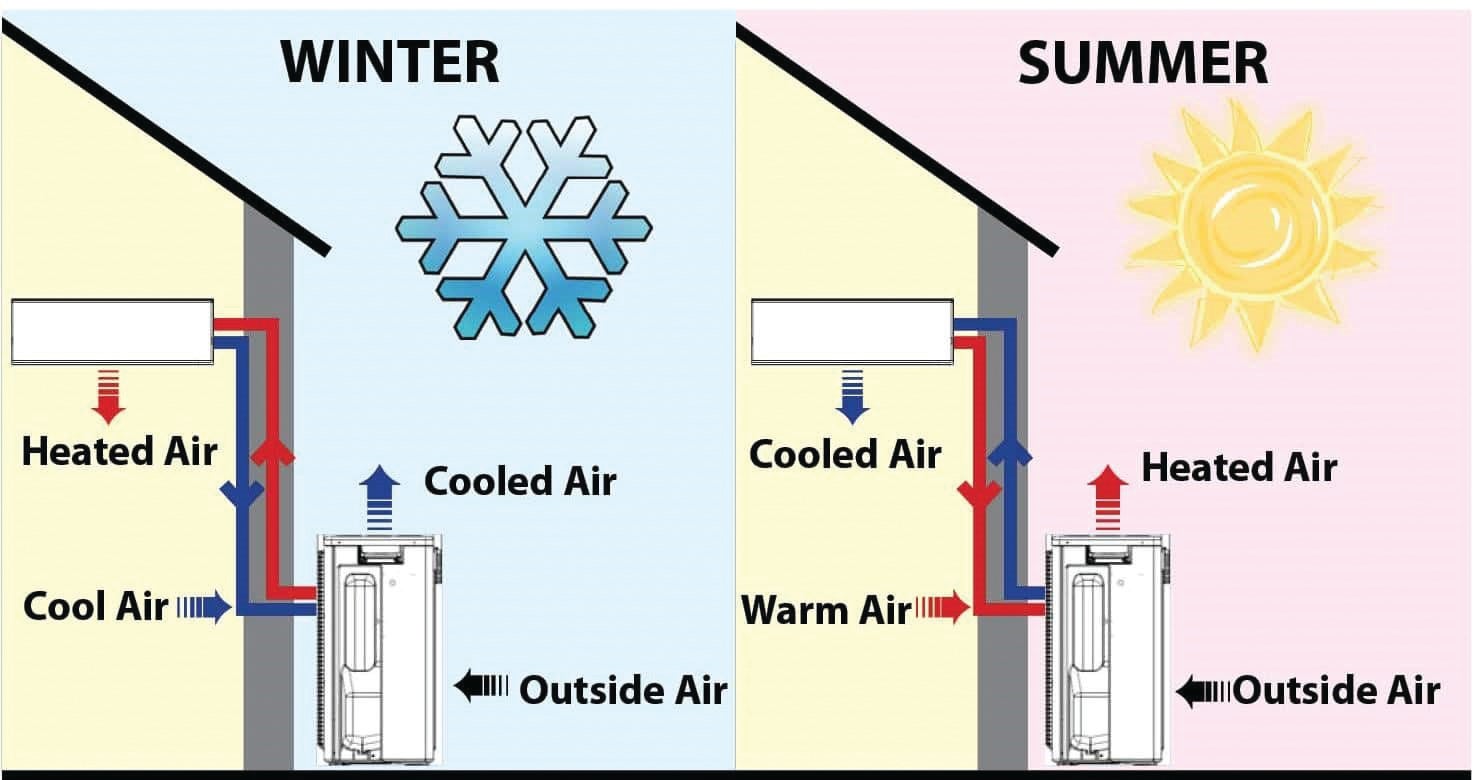How to find the most cost-efficient
heating source as Texas heads into Fall
by
RYAN HOERNER
Although the severity of Texas winters is ultimately uncontrollable, variable factors that affect space heating can give homeowners more control in cooler temperatures. Those factors include the extent of heat, the means of heat and personal comfortability.
Space heating is defined as the heating of a space by any means, particularly for human comfort. According to the U.S. Energy Information Administration, space heating accounts for the largest share (43 percent) of a residential home’s total energy consumption, especially those heated electrically. Every winter, members with electric heat demonstrate the inverse relationship between plummeting outside temperatures and soaring electric consumption.
As the largest energy consumer in most homes, space heating efficiency can prove to be a worthwhile investment. The two main sources of space heating are gas (usually natural gas or propane) and electricity. As the availability of natural gas is limited to certain densely populated, urban areas, the vast majority of homes within United’s territory rely on electric heating.
Propane heating proves efficient in below-freezing temperatures and is available in rural areas, however, some electric heat sources are more cost-effective in the long run. Although natural gas today is the most cost-efficient form of heating when compared to the other sources, all members can take steps to ensure their space heating is performing at its utmost efficiency. It is crucial that members understand how their specific heating system operates and tackle any costly inefficiencies that could lead to continued savings year after year. As always, United’s Energy Solutions team is here to assist members whether purchasing new HVAC equipment or maximizing the efficiency of an existing system.
Electric Resistance and Heat Pumps

Electric heating can be broken down into two main categories—electric resistance and heat pumps.
Electric resistance heat is completely energy efficient in the sense that all the electricity consumed is converted into heat. However, the amount of power consumed by electric resistance is exceptionally high. Electric resistance heaters consume three to four times the amount of electricity on average that central heat pumps or air-conditioning units use.
Conversely, heat pumps utilize electricity to transfer heat from a cool space to a warm space. This means that a heat pump takes heat from one location (usually the air outside) and transfers the heat inside a home. According to the Department of Energy, having a heat pump can cut energy usage by 50 percent in the winter when compared to electric resistance heating. This is due to a much lower energy demand required to transfer heat compared to converting or producing heat.
The two main types of heat pumps are air-source and ground-source, or geothermal, heat pumps. As their names suggest, an air-source heat pump concentrates heat from outside air whereas a geothermal heat pump concentrates heat from below the surface of the ground. Although geothermal systems are proven to be more efficient, their high installation cost and land requirements make air-source heat pumps much more popular. United encourages members to consider replacing aging inefficient HVAC systems with higher efficiency systems to ultimately reduce consumption. Make sure to reach out to United’s Energy Solutions team to confirm eligibility for either air-source or geothermal heat pump rebates.
Making the Most of Your Thermostat
If replacing an AC unit with a heat pump is out of one’s budget, adjusting thermostat settings is a great way to decrease electrical consumption. United recommends setting the heat to 68 degrees or lower during the winter. Each degree higher than 68 degrees can equate to an additional 5 percent on an energy bill. If members can remain comfortable within a home at decreased temperatures, the reduced runtime of their heat will pay off during the course of winter. Even if a home is equipped with a heat pump, keeping the thermostat at a lower setting can also aid in lowering energy consumption.
Most heat pumps are also installed with an emergency or auxiliary heat. This backup heat, which is usually electric resistance heat, will activate under a few circumstances.
First, to reap the efficiency benefits of the heat pump, make sure the thermostat is set to heat, not emergency or auxiliary heat.
Second, do not raise the thermostat several degrees at a time as this will cause the system to automatically default to inefficient backup heat. Be sure to only raise the thermostat one or two degrees at a time to allow the outdoor unit, or heat pump, to heat the home.
Finally, heat pumps operate when the ambient temperature is above freezing and can default to electric resistance heat when the temperature is below freezing.
If there are only a few spaces within a home being occupied at night, space heaters can be utilized for those rooms. Contrary to popular belief, space heaters that are used in conjunction with lowered central HVAC thermostat settings can provide considerable savings. To put this in perspective, a common household space heater uses 1,500 watts, whereas central electric resistance heaters use anywhere from 12,000 to 28,000 watts, depending on size. These space heaters can keep a few bedrooms in a home warm while the unused spaces in the home are kept cooler. Make sure to limit the runtime on these space heaters as much as possible. If they are being used around the clock, they could ultimately increase winter bills.
Staying Warm in Cooler Months
Fireplaces are thought of as an additional heat source, though they can prove to be a major contributor to energy loss within a home. Fireplaces, albeit a great family gathering spot, can lead to significant heat loss and increased cost when used simultaneously with central heat. Consumers should turn off or lower the central heating to 50 to 55 degrees and close all doors that separate the fireplace from other areas of a home when the fireplace is in use. This will keep the heat from continuously running while the fireplace displaces most of the conditioned air up the chimney. Overall, routinely using a fireplace is an inefficient method of keeping the valuable heat within the home and will translate into higher winter energy bills.
Last, but certainly not least, members should change the HVAC system’s filters on a regular basis and take advantage of United’s HVAC tune-up rebate. Clean filters will allow for more efficient heating and cooling and may even extend the life of the system.
Additionally, having an HVAC professional inspect the system before the winter gives consumers peace of mind that their system is running at its utmost efficiency. United assists members with up to $100 per year per residential system with the co-op’s tune-up rebate. Feel free to call any United office with questions or visit ucs.net/rebate-programs.



